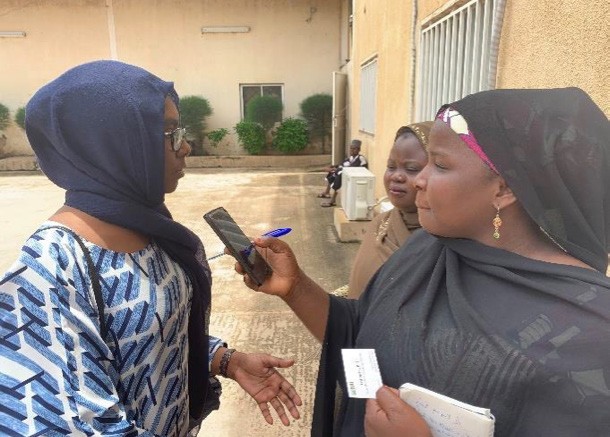- What We Do
- Agriculture and Food Security
- Democracy, Human Rights and Governance
- Economic Growth and Trade
- Education
- Environment and Global Climate Change
- Gender Equality and Women's Empowerment
- Global Health
- Humanitarian Assistance
- Transformation at USAID
- Water and Sanitation
- Working in Crises and Conflict
- U.S. Global Development Lab
Speeches Shim

In northern Nigeria, morality and fear of moral decline is frequently used as a justification for restricting women and girl’s access to technology and the internet. Using the WCC grant, the Tech4Families program is combining media and community mobilization to convene families and Muslim clerics to combat negative norms and promote social and religious justifications for women’s use of the internet. A twelve-part radio program to explore these issues launched in August and is expected to reach an audience of well over nine million over the course of the broadcasts.
Tech4Families designed the radio program with insights from community-based research, experienced local scriptwriters, and an expert content advisory group. Each 30-minute episode includes a drama segment, which explores a topic in a culturally appropriate way, and a discussion segment, which brings in locally respected experts and leaders to share their views. Weekly themes include: understanding the internet, common misperceptions and attitudes surrounding the internet, moral and religious arguments surrounding women and the internet, and internet safety and security.
Understanding that the family unit is central to sustainably shifting perceptions and practices around tech access for women and girls, Tech4Families is convening 15 families (75 individuals) to participate in Listening Discussion and Action Groups. Following a unique curriculum designed specifically for this project, these groups will partake in a series of facilitated sessions over eight months to engage more deeply with the radio program content, critically reflect on the issues raised, and build their skills and knowledge of technology in a safe environment. Feedback and insights from these learning groups will reveal to what extent the program is helping to break down myths, challenge oppressive norms, promote access to technology, build skills, and destigmatize and normalize women and girls’ use of digital technology.

Comment
Make a general inquiry or suggest an improvement.